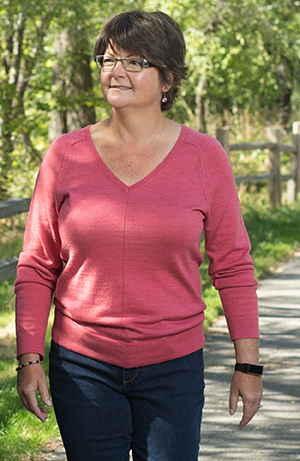A
B
C
D
E
F
G
H
I
J
K
L
M
N
O
P
Q
R
S
T
U
V
W
X
Y
Z
Topic IndexLibrary Index
Click a letter to see a list of conditions beginning with that letter.
Click 'Topic Index' to return to the index for the current topic.
Click 'Library Index' to return to the listing of all topics.
Managing Fibromyalgia
Fibromyalgia is a chronic illness. It causes widespread body pain, tenderness, stiffness, and constant tiredness (fatigue). It is important to work with your healthcare provider to make a plan so that you can feel better and do the things you enjoy.
Take medicines as directed
You may be given medicines to help reduce pain and improve sleep.
Several medicines are used to treat fibromyalgia. Two were first made to treat depression. They are duloxetine and milnacipran. A third is called pregaballin. It was made to treat nerve pain. Other medicines include pain relievers, such as acetaminophen. Opioid pain medicines and sleep medicines like zolpidem are not advised for treating fibromyalgia symptoms.
Nonsteroidal anti-inflammatory drugs (NSAIDs) may also be used to ease pain. These include ibuprofen and naproxen.
Get exercise

Gentle exercise can help lessen your pain. Try these tips:
-
Choose activities that are gentle on your joints, such as walking, tai chi, gentle yoga, biking, and swimming or other water exercises.
-
Don’t push yourself too hard. Build up your strength and endurance slowly over time.
-
Stick to it. For the most relief, exercise should become part of your daily life.
Get a good night’s rest
To help you get more sleep, try the tips below:
-
Sleep only in a bed, not on a couch or chair.
-
Don’t watch TV, read, or work in bed.
-
Go to bed and get up at the same time each day.
-
Try not to take naps.
-
Don’t use alcohol, caffeine, or tobacco for at least 3 hours before going to bed.
-
Don’t drink fluids in the evening to prevent having to get up to urinate.
Other things you can do
Experts don't know what causes fibromyalgia. But stress, poor eating habits, and extra weight can make symptoms worse. These tips may help you feel better:
-
Eat a balanced diet with plenty of fruits and vegetables, whole grains, lean protein, and low-fat or nonfat dairy products.
-
Maintain a healthy weight.
-
Learn ways to reduce or manage the stress in your life.
-
Work with a cognitive behavior therapist to help manage symptoms of depression and anxiety
-
Ask your healthcare provider for resources to help you make changes. Or check out the resources below.
Online Medical Reviewer:
Dan Brennan MD
Online Medical Reviewer:
Marianne Fraser MSN RN
Online Medical Reviewer:
Rita Sather RN
Date Last Reviewed:
3/1/2024
© 2000-2025 The StayWell Company, LLC. All rights reserved. This information is not intended as a substitute for professional medical care. Always follow your healthcare professional's instructions.